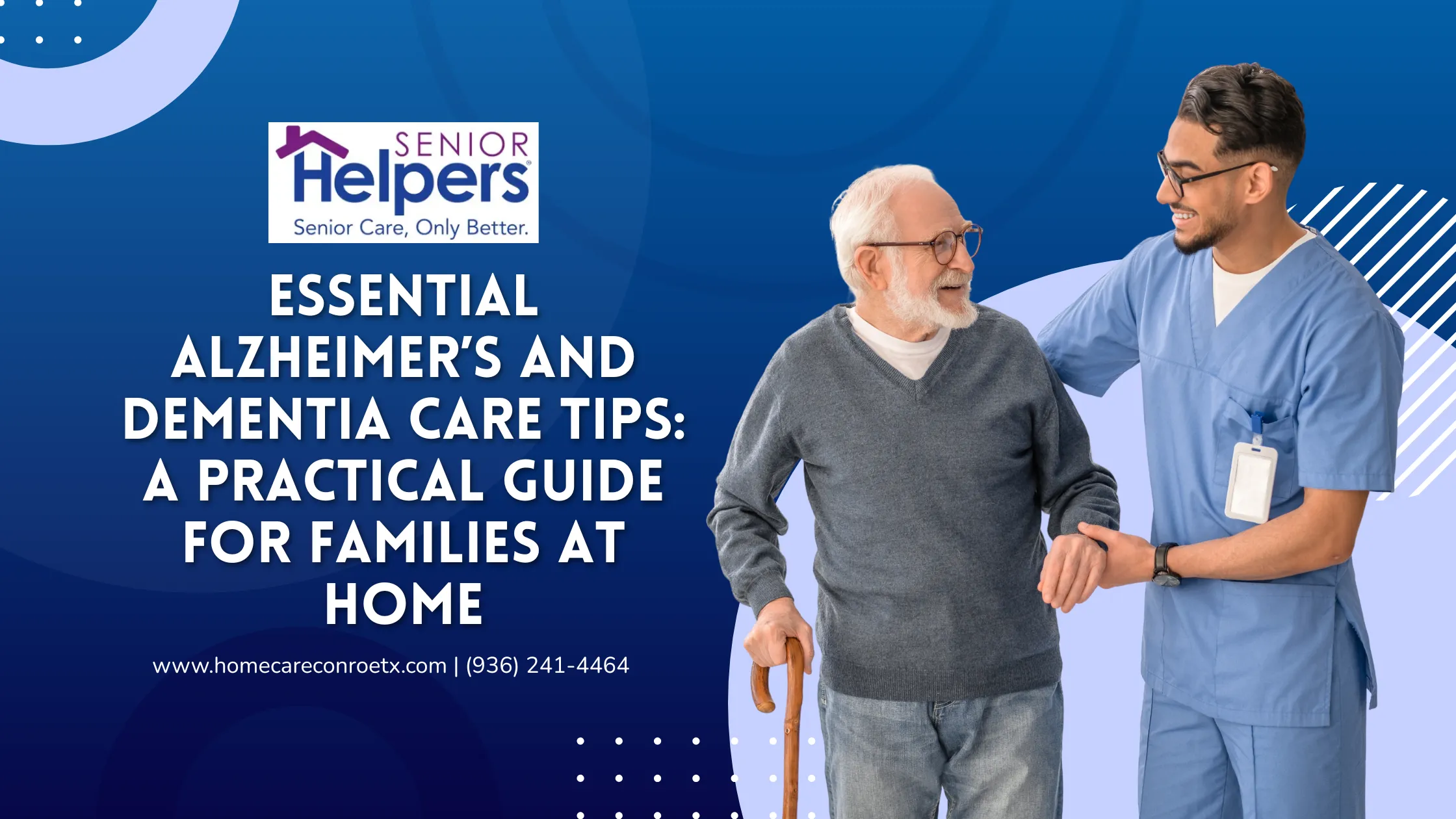Caring for a loved one with memory loss isn’t something most people are prepared for. But millions of families are navigating this journey with courage, patience, and love. Whether you’re just getting started or have been providing care for a while, practical guidance makes a huge difference.
In this guide, you’ll learn simple, real-world strategies to help you provide better care — with less stress — right in your own home.
1. Get to Know What You’re Really Facing
Understand the nature of Alzheimer’s and dementia before planning your care approach.
These conditions are often misunderstood. Alzheimer’s is a disease that gradually affects memory, thinking, and behavior. Dementia is a general term for various cognitive issues that interfere with daily life.
Both are progressive. That means they change — and your care approach needs to adapt alongside those changes.
2. Make the Home Feel Safe and Predictable
Reduce confusion by creating a stable and familiar environment.
A comfortable, clutter-free space can prevent accidents and reduce agitation. Here’s how:
- Keep furniture and common items in familiar places
- Use soft lighting and nightlights in dark areas
- Add clear labels to drawers and rooms
- Secure rugs, cords, and small objects that cause falls
If you’re not sure how to set up your home, these in-home memory care services can guide your setup and planning.
3. Learn to Speak Their Language
Adapt your communication style to reduce frustration and build connection.
Simple, clear, and kind communication makes a difference. Avoid rushing, correcting, or overloading them with information.
Here’s what helps:
- Use short sentences and basic words
- Speak slowly and calmly
- Ask one question at a time
- Maintain gentle eye contact
When memory lapses happen, shift the conversation rather than correcting them directly.
4. Stick to a Routine That Works for You Both
Daily structure builds trust and helps everyone stay grounded.
People with dementia do better when they know what to expect. Build a routine around personal hygiene, meals, light activities, and rest.
Sample routine highlights:
- Morning: Wash up, eat breakfast, listen to music
- Midday: A short walk or puzzle, followed by lunch
- Afternoon: Rest time or a light chore like folding towels
- Evening: Dinner, familiar TV shows, and calm bedtime prep
Even simple routines reduce stress for caregivers and loved ones alike.
5. Offer Choices — Not Control
Encouraging independence, even in small ways, builds dignity.
Let your loved one be involved, even if they need assistance. For example:
- Choose between two shirts
- Stir ingredients for a simple snack
- Water plants with supervision
- Match socks or sort silverware
Adding companion assistance ensures these tasks are done safely while allowing independence to thrive.
6. Respond — Don’t React — to Behavioral Shifts
Emotional outbursts are common, but your response can de-escalate them.
Agitation, fear, and confusion can appear suddenly. Often, these behaviors are triggered by hunger, pain, or overstimulation.
What helps:
- Stay calm and quiet
- Redirect to a soothing activity (music, snack, hand massage)
- Remove distractions
- Avoid confrontation
For recurring challenges, trained professionals in chronic condition care can help reduce stress on the household.
7. Take Care of Yourself First
Caregivers need support too — your well-being matters.
Burnout is common in dementia care. Your physical and mental health directly affect your ability to care for others.
Make time to:
- Take regular breaks using respite care
- Share responsibilities with family
- Join a local or online support group
- Keep your doctor appointments and sleep schedule
You are doing important work. Prioritize your health, even in small ways.
8. Plan for the Future Before You’re Overwhelmed
Early planning makes transitions smoother for everyone.
Thinking ahead can feel uncomfortable, but it provides peace of mind. Address both short-term and long-term care needs early on.
Start by organizing:
- Legal documents (power of attorney, health directives)
- Financial arrangements
- Eligibility for programs like veteran benefits assistance
- Support systems like end-of-life services
You’ll thank yourself later for having these in place.
9. Leverage the Tools and Support Systems Available
Technology and services can reduce your burden and enhance care.
There are many assistive tools today — memory boards, meal reminders, wearable GPS trackers. But nothing replaces human touch and expertise.
Services like personalized in-home care can provide what tools cannot: real-time judgment, companionship, and skilled support.
If you’re seeking trusted local experts, check out Senior Helpers on Google to find support in your area.
10. You’re Not Alone — Ask for Help When You Need It
There’s strength in accepting support. You don’t have to do it all.
Caring for someone with Alzheimer’s or dementia can feel isolating, but there are resources available — from community programs to full-service home care solutions.
If you’re ready for guidance or relief, consider reaching out to a local provider who specializes in return-home programs, post-hospital care, or personalized support that fits your routine.
Final Word
You are doing one of the hardest — and most meaningful — jobs: showing up every day for someone you love. With patience, planning, and the right tools, home-based care can be both manageable and fulfilling.
If you’re feeling overwhelmed, don’t wait. Explore available care options and start creating a home environment where everyone — including you — feels supported.



